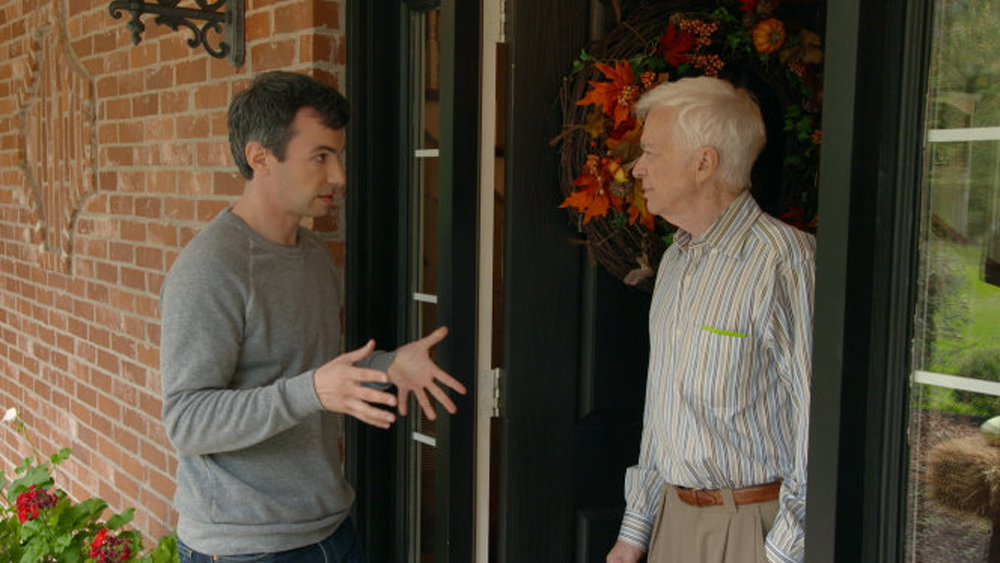Why ‘Nathan for You,’ the Scamming Show That Defined 2018, Deserves an Emmy
LOS ANGELES (Variety.com) – The Emmy category for best variety sketch series has, in its three-year existence, honored three shows at their moment of most urgent relevance. “Inside Amy Schumer” won after its breakout third season, featuring startling and brutally funny deconstructions of misogyny including “Last F—able Day” and “12 Angry Men Inside Amy Schumer.” “Key & Peele” won for its final season, as Jordan Peele prepared to take off to shoot “Get Out.” And, last year, “Saturday Night Live” won for its season that spanned the election of President Trump and the first, Sean Spicer-heavy months of his administration.
All of these shows, to varying degrees of success, responded directly to the times in which they were shot. Which is why, this year, Comedy Central’s “Nathan for You” needs to be in the running — and, if nominated, should win. As much as any show on the air, in any genre, Nathan Fielder’s rigorously uncomfortable look at the twisted, desperate world of one entrepreneur is a show that speaks to our historical moment.
For the uninitiated, plays “Nathan Fielder,” a Canadian self-styled business genius who’s come to America (generally the sun-baked and unlovely suburbs of Los Angeles) in order to help salvage flailing businesses. In the most recent season, for instance, he attempts to get a chili shop a berth selling food at an arena not by getting the appropriate permits but by smuggling in chili in a fat suit under his clothes. In order to save a parcel company money on shipping smoke detectors, he tries to exploit a tax loophole around musical instruments by proving smoke detectors — played in ear-piercing staccato — can be a part of a band. It’s both a witty depiction of a very literal thinker and something that’s hauntingly more.
The show’s cruel magic lies in the collision of someone who transparently is of little use — Fielder, who, in character, comes up with ideas whose risk and expense vastly outweighs their utility — and the people he ensorcells. Folks whose businesses’ struggles are somewhere on the road to existential seem to feel, again and again, as though they can’t afford
not
to listen to Fielder; his methods are less unorthodox than outright foolish, but, still, he seems confident enough to be heard out.
Fielder is a very 2018 sort of confidence man — one whose sheer belief in himself buoys him relentlessly forward, battening down opposition as he goes less by charm than by refusal to hear evidence that he might be wrong. His marks believe he may well know what he’s talking about; they also, in many cases, seem to want a friend. In the strangely powerful season-ender, “Finding Frances,” that theme was stretched to the point of pain. In the episode, which Comedy Central is putting forward for the outstanding variety special Emmy, Fielder assists a comically unsuitable “Bill Gates impersonator,” with whom he’s worked before, to find a long-lost love, one that we come to realize, only after she’s been located, cares little for the man who’s been chasing her. She doesn’t seem to remember him. Meanwhile, Fielder has embarked upon a relationship with a prostitute that’s necessarily defined by transaction rather than feeling. But to Fielder, at least, there seems little difference. Just like a simulation of a good idea could well be the silver bullet a business needs, fake love can seem real if one is willing to squint a bit.
Questions of just how real “” itself is — how in on the joke everyone is, how real the situations are — haunt the enterprise, but in ways that add to rather than take away from the experience. After all, if Nathan is a grifter, or a “scammer,” to quote what seems to be the signature word of 2018 for someone whose belief in their own ability cannot be restrained by facts, why shouldn’t his show scam us, too? On the way to doing so, it paints a picture of American life that’s troubling and real. Mom-and-pop shops are failing (independent taxi drivers succumbing to Uber, retailers are no match for Amazon) and the proprietors can’t find any way to relate to their neighbors beyond tricking them. Few conversations can happen beyond ones centered around how to claw ahead in a punishing environment. At the center of the labyrinth sits Fielder, whose smile never fades. It’s not a predatory leer but the same serene smirk that looks familiar from the faces of Silicon Valley titans who we now know have hidden certain Faustian elements of the bargains they provide, or politicians in whose thrall so many Americans remain. It’s a smile that tells us that he’s got it all figured out, even as we at home know he’s as lost as any of his subjects — or any of us.

